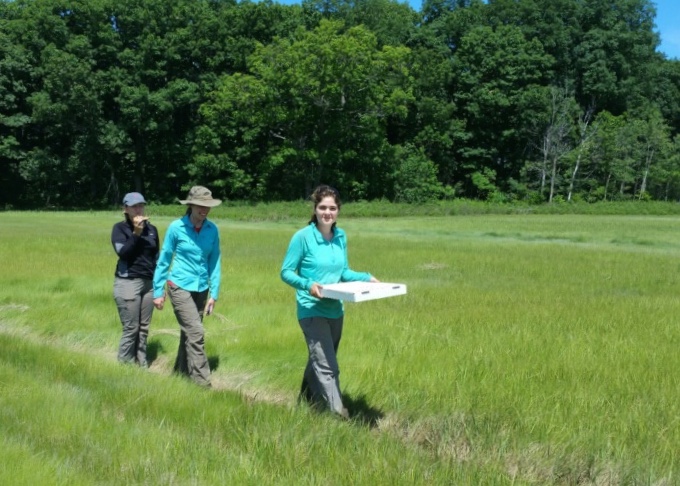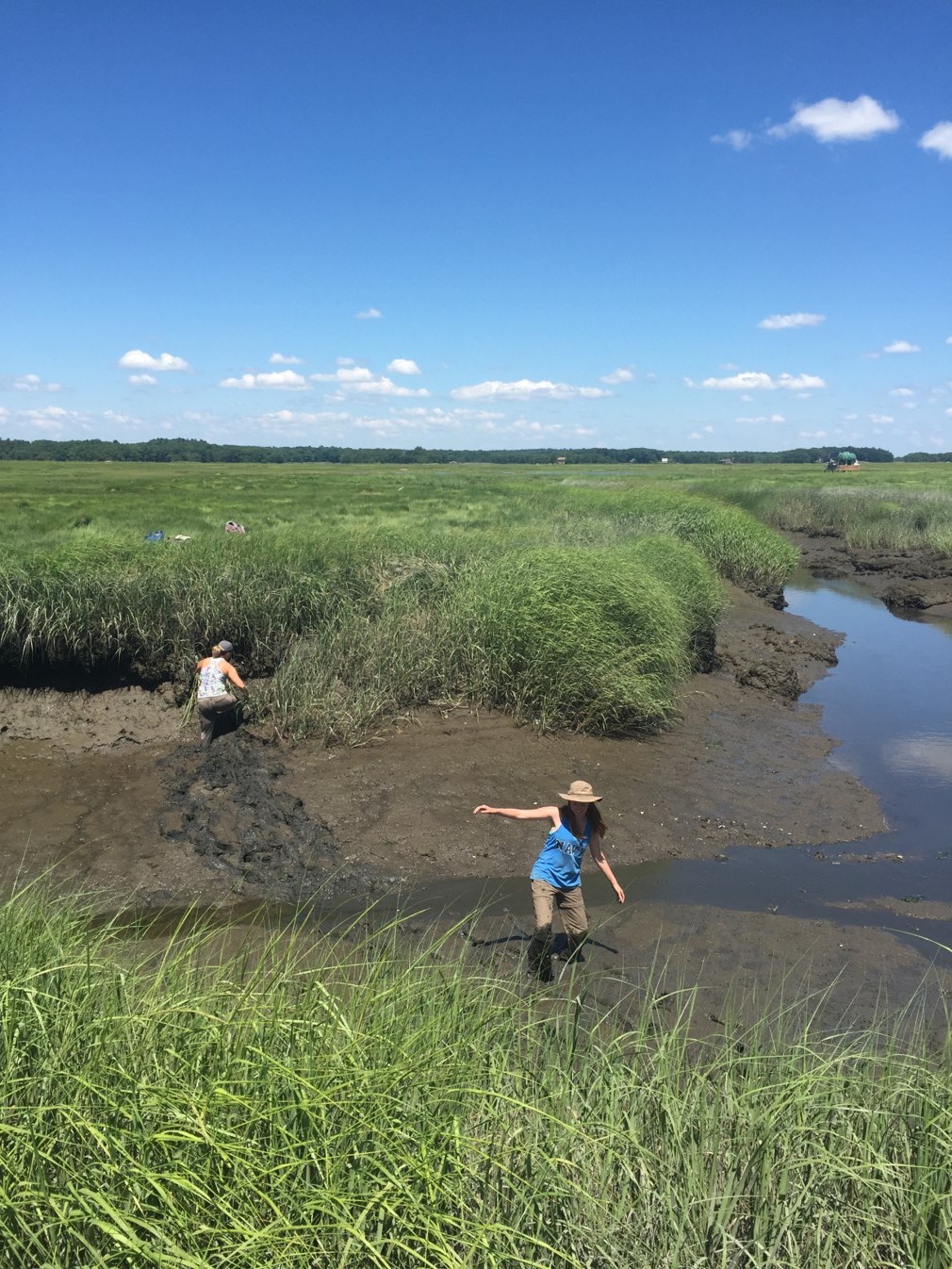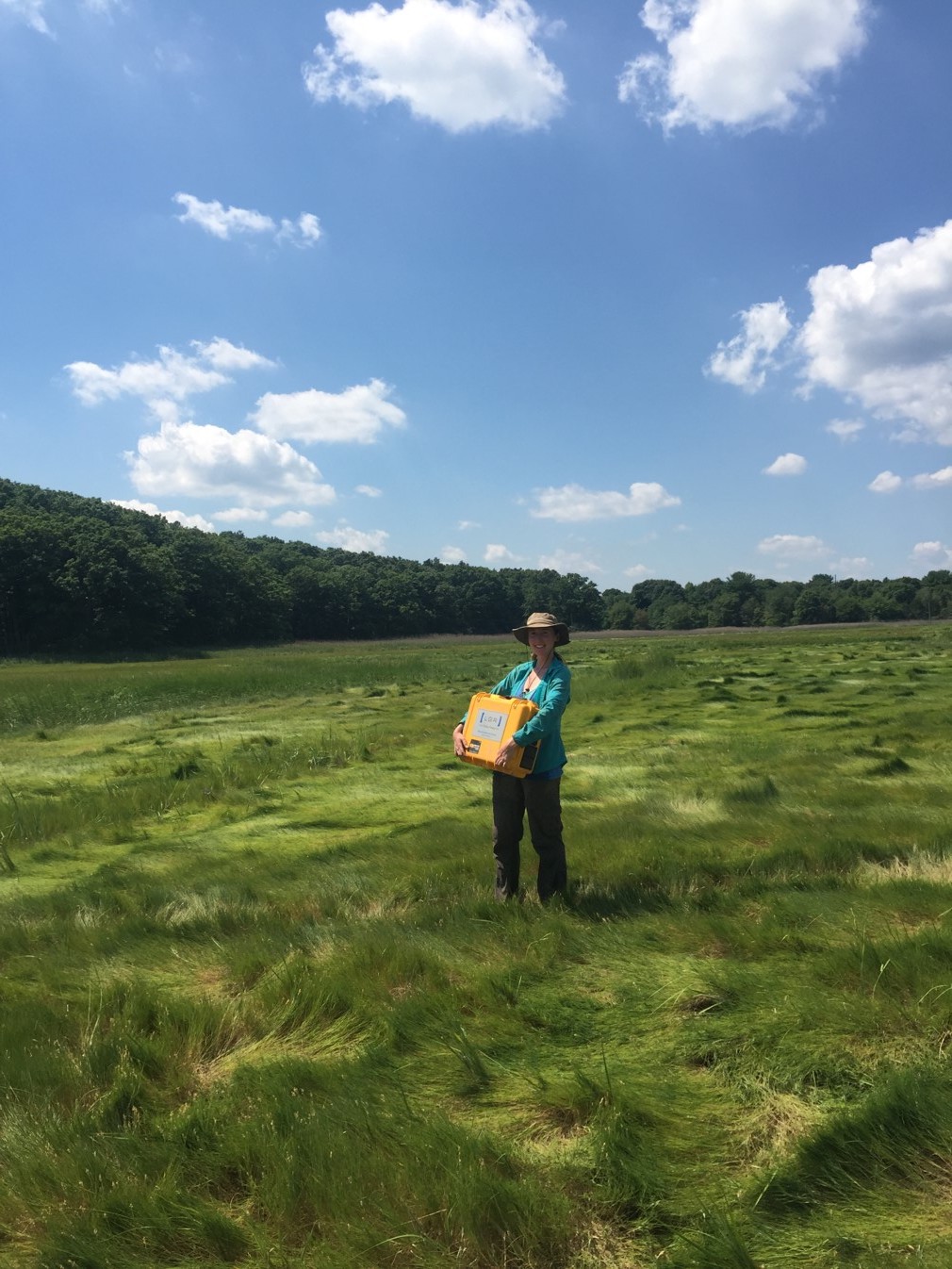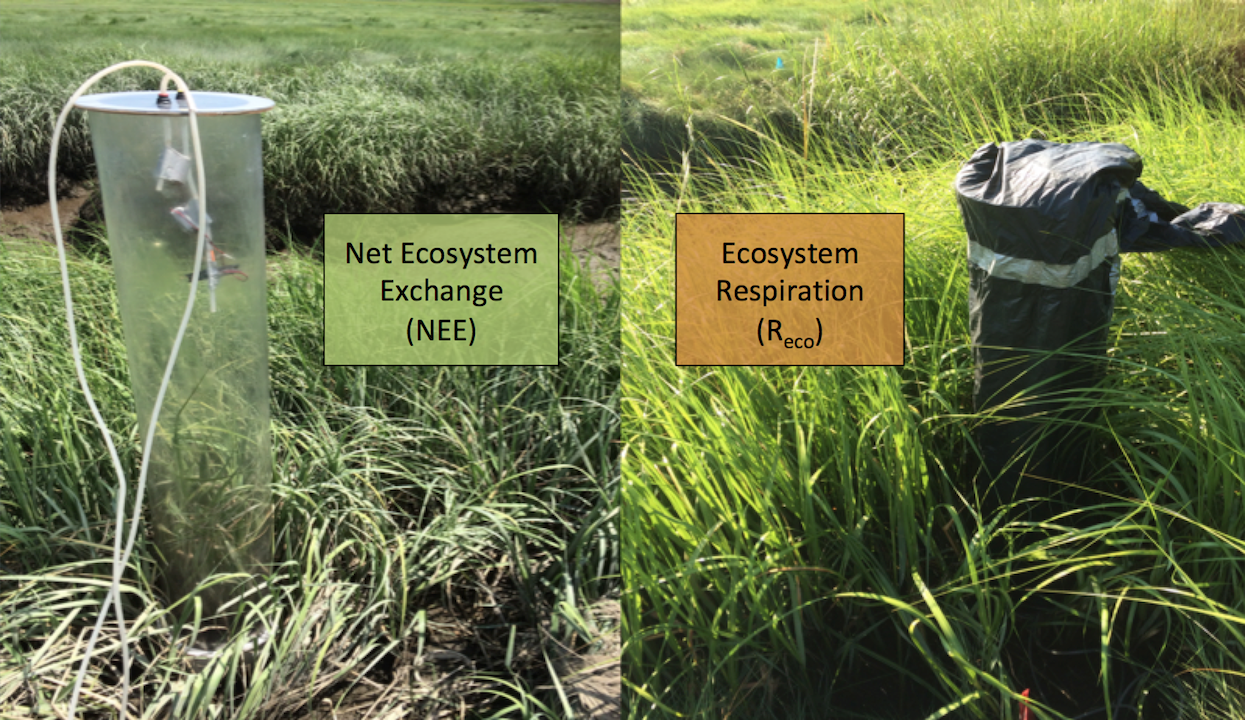Bryn Mawr College / Senior Thesis
TIDE Project
Nitrogen Enrichment Alters Carbon Fluxes in a New England Salt Marsh
Publication: Geoghegan et al. 2018. https://doi.org/10.1080/20964129.2018.1532772
NSF Project Title: Collaborative Research: Ecosystem Evolution and Sustainability of Nutrient Enriched Coastal Saltmarshes
| Investigator(s): | Thomas Mozdzer [email protected] (Principal Investigator) |
Many coastal salt marshes receive excessive nitrogen (N) loads from upstream agricultural systems. While useful for understanding underlying biogeochemical responses, isolated incubation or mesocosm studies do not provide sufficient estimates of ecosystem-level response to N enrichment. Here, we examined the ecosystem-level effects of nitrate-N enrichment on the greenhouse gas flux dynamics of a Spartina alterniflora-dominated salt marsh by measuring fluxes directly in the field. Enrichment of an experimental creek (70-100 μM NO3-) stimulated ecosystem respiration (Reco), gross primary productivity (GPP) and aboveground biomass (ABG) growth but had no effect on net ecosystem exchange (NEE) or belowground biomass (BGB).
Our findings suggested that N enrichment stimulated respiration by the soil microbial community, ultimately leading to the loss of previously stored carbon from the wetland peat. Simple calculations of seasonal C budgets within the low-marsh indicate that N enrichment may have caused this ecosystem to act as a C source rather than a C sink. Our results suggest that in combination with prior findings of N enrichment weakening soil structure, increased nutrient input to tidal salt marshes can reverse the C storage function of the low-marsh platform.
Plum Island Ecosystems LTER website: http://pie-lter.ecosystems.mbl.edu/welcome-plum-island-ecosystems-lter





